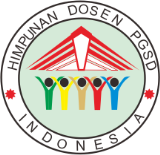Supervisory Management in Improving School Quality (Case Study at SMAN 1 Tanjung Lago South Sumatra)
DOI:
https://doi.org/10.36706/jisd.v11i1.56Keywords:
Supervision Management, School Quality, QR CodeAbstract
Abstract
This research aims to (1) Understand and describe the supervision of teacher attendance in schools, (2) Understand and describe the suitability of QR Codes for teacher attendance, and (3) Understand and describe the benefits of using QR Codes for attendance compared to manual attendance. This research employs a qualitative method, which is appropriate for the topic under study as the research area is one that is subject to change and development based on existing social situations. Informant selection in this research was done using the snowball sampling technique. The results of the study indicate that: (1) Although manual attendance has many drawbacks, it can still be used as a backup if the signal is lost, (2) Digital attendance is very suitable for current times because it facilitates attendance in an effective and efficient manner, and (3) The benefits of digital attendance have a positive impact and offer advantages because digital attendance is more transparent and flexible in supervision, potentially contributing to the improvement of school quality.
References
Astarina, I., Hapsila, A., dan Fitrio, T. 2019.The Influence of Dicipline on Lecturers’ Motivation and Performance in Indragiri College of Economics (STIE) Rengat.International Journal of Scientific Research and Management, 7 (9), 1327-1343.
Bukman Lian, M. J. (2023). The Effectiveness of the Use of E-learning (SISFO) on Improving Lecturer Performance and Academic Learning at PGRI Palembang University. 141-152.
Chee., K. H. (2021). Exploring the Motivation of Pupils towards the Implementation of. Academic Journal of Interdisciplinary Studies, 205.
Damayanti, D. (2017). Kemampuan Manajerial Kepala Sekolah, Iklim Sekolah Dan Mutu Sekolah Dasar. Jurnal Administrasi Pendidikan UPI.
Hermanto, N. (2019). Aplikasi Sistem Presensi Mahasiswa Berbasis Android. Jurnal Simetris.
Ivan Fauzan. (2020). Artificial Intelligence (AI) Pada Proses Pengawasan Dan Pengendalian Kepegawaian – Sebuah Eksplorasi Konsep Setelah Masa Pandemi Berakhir, Civil Service VOL.14, No.1, 31 - 42.
Kristiawan, M. (2018). Inovasi Pendidikan. Jawa timur, Indonesia: Wade Group
Manora, H. (2019). Peranan Kepala Sekolah Dalam Meningkatkan Mutu Pendidikan. Edification Journal: Pendidikan Agama Islam, 1(1), 119-125.
Marhawati, B. (2018). Pengantar Pengawasan Pendidikan. Yogyakarta: Deeppublish.
Sabrina, R. (2021). Manajemen Sumber Daya Manusia: Unggul, Kreatif, dan Inovatif. Jurnal Ilmiah Manajemen Dan Bisnis, 216-222.
Sari, J. D. R., Giatman, M., & Ernawati, E. (2021). Peran Kepemimpinan Kepala Sekolah dalam Meningkatkan Mutu Pendidikan. Jurnal Penelitian Dan Pengembangan Pendidikan, 5(3), 329–333.
Satrio, M. A. (2017). Aplikasi Presensi Mahasiswa dengan Menggunakan QR-Code Berbasis Android pada Universitas Bina Darma. SENTIKOM2017, 7-12.
Sholechan, R. (2023). Sitem Informasi E-Presensi menggunakan Qr-Code pada MTS MA’Arif NU Roudlotul Musthofa Berbasis Web. JISTIC.
Widayatsih Tri. Manajemen Praktik Unit Produksi, Palembang, NoerFikri Offset,2023.
Yunianto, D., Riadi, S. S., Adhimursandi, D. 2020. Pengaruh Komitmen Organisasi dan Kepemimpinan serta Kedisiplinan Terhadap Peningkatan Motivasi dan Kinerja Pegawai.Forum Ekonomi, 2 (1), 27-36.
Yiyi Supendi, I. S. (2019). Pemanfaatan Teknologi Qr-Code Pada Sistem Presensi Mahasiswa Berbasis Mobile. SEMNASTIK 2019.
Zainuddin, M. r. (2020). Pengembangan Sistem Pendidikan Pesantren Tradisional Dalam Era Modernisasi. Journal Of Islamic Education, 183-195.
Downloads
Published
Issue
Section
License
Copyright (c) 2024 Nyoman Widiya Widana Nyoman, Tri Widayatsih, Muhammad Juliansyah Putra

This work is licensed under a Creative Commons Attribution-ShareAlike 4.0 International License.
Nama dan alamat email yang dikirim ke portal ini akan digunakan secara khusus hanya untuk keperluan jurnal ini dan tidak akan digunakan untuk keperluan lain atau disebar ke pihak lain.






